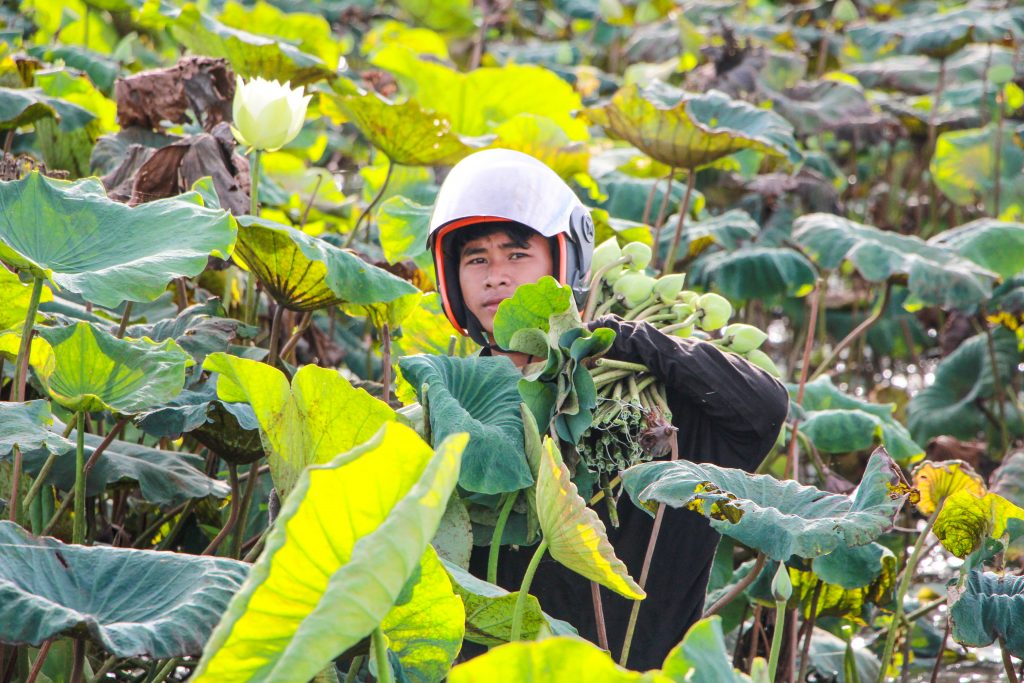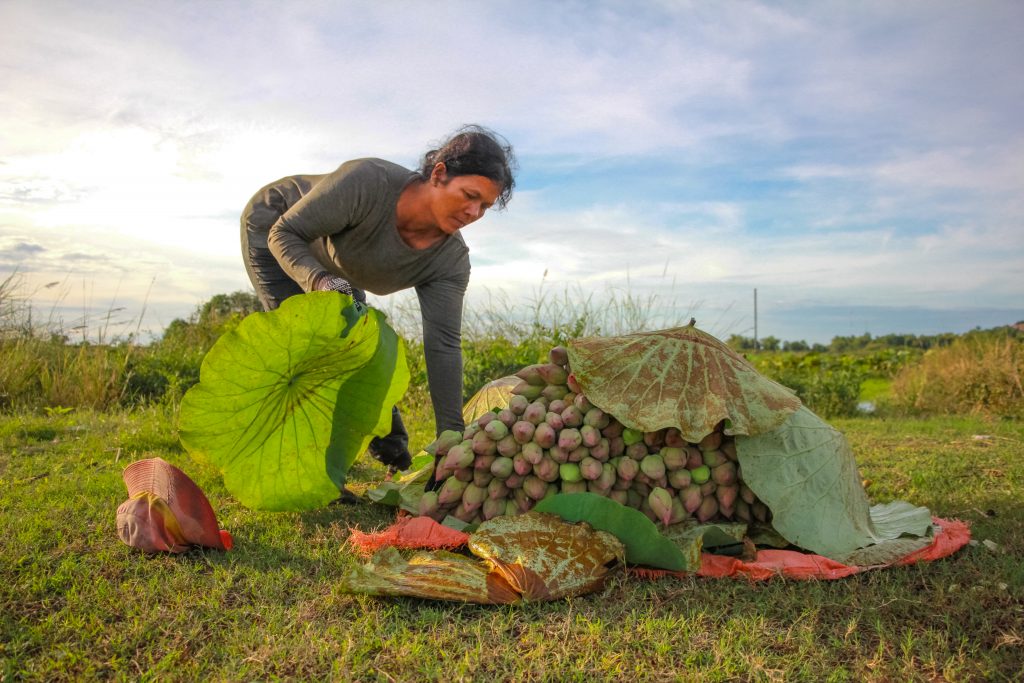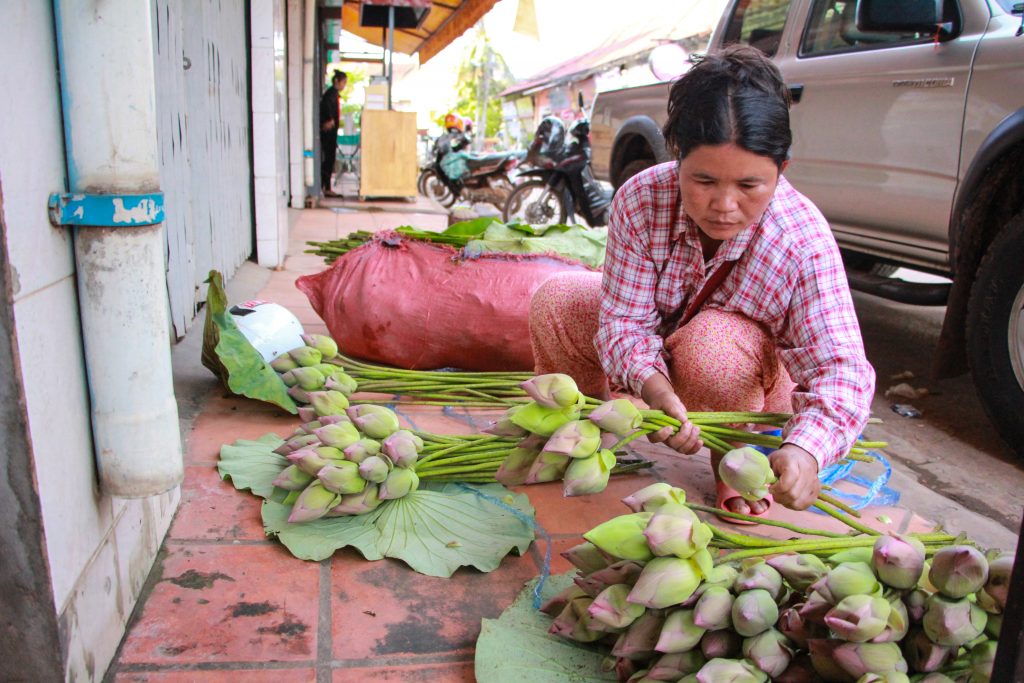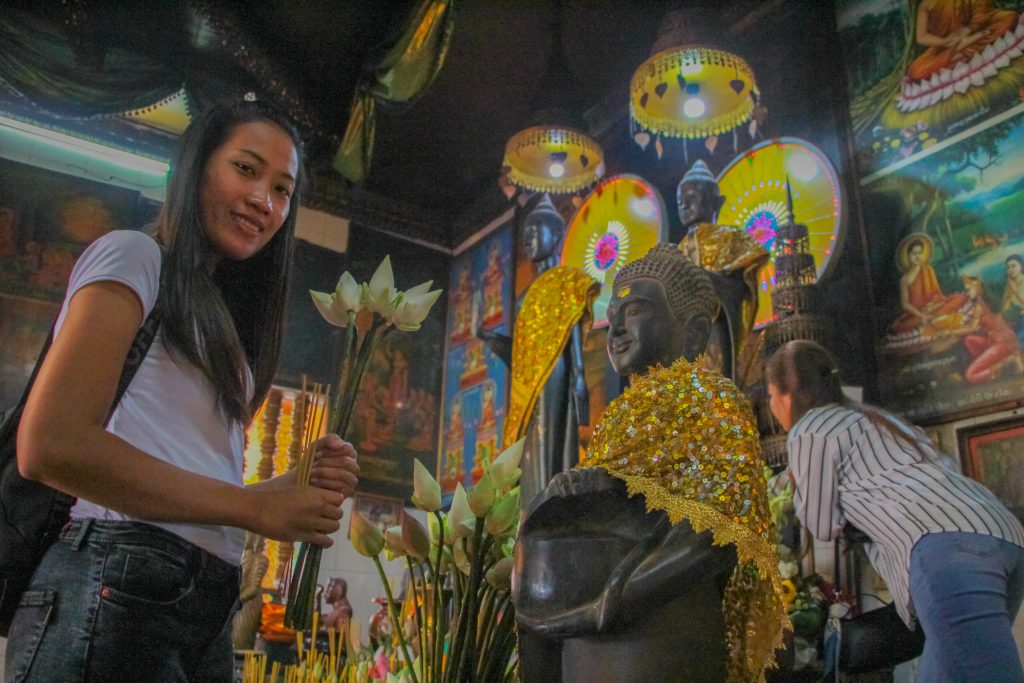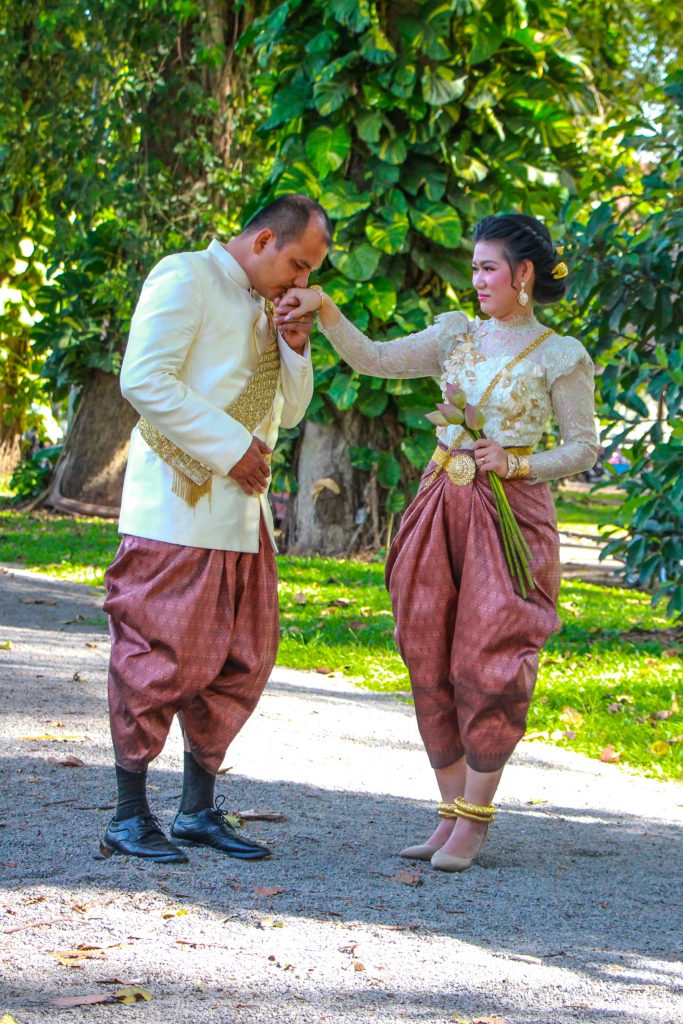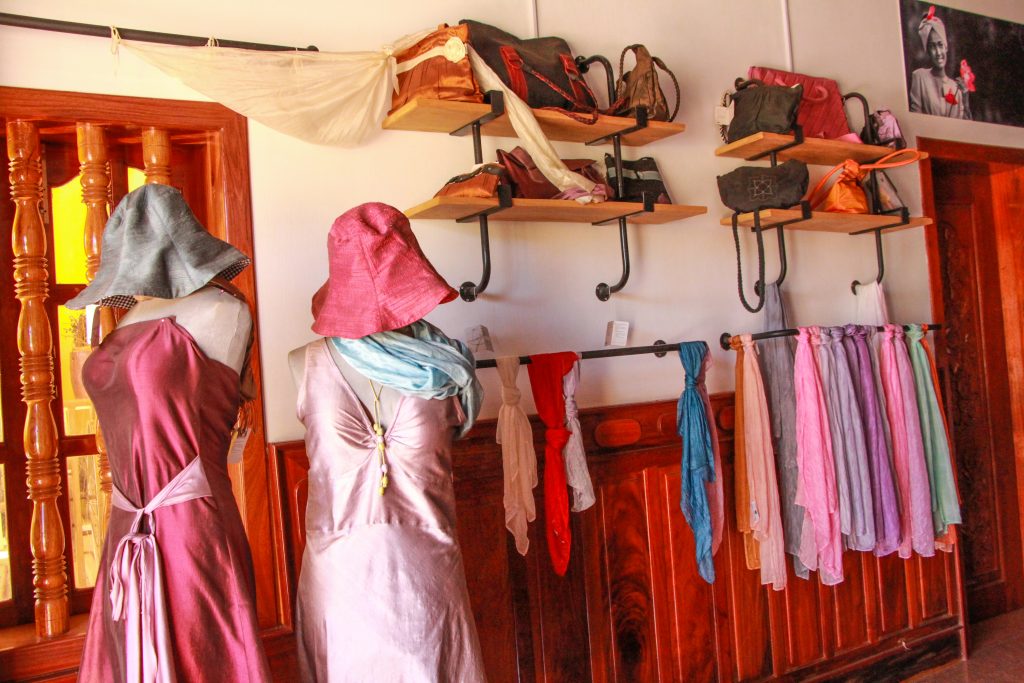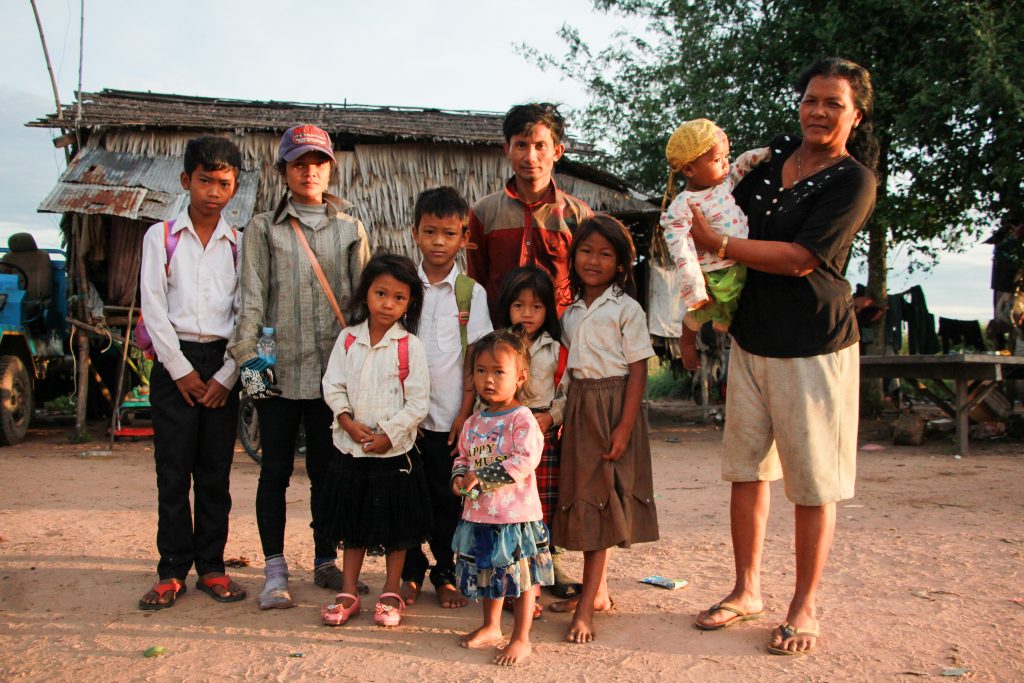Life of Lotus farmer in Phnom Krom
Photo Story By: Aing Sereyrath
Publication Year: 2018
Authorized By: Wonders of the Mekong Project
Photostory Workshop By: Suthep Kritsanavarin / USAID Wonders of the Mekong Project
Lotus farming is a big and important business for people in Phnom Krom. Some families only depend on the income from lotus farming because in Siem Reap, lotuses have high economic value and high demand from hotels, restaurants, temple, shops and lotus workshops that produce lotus flower fabric. On the other hand, water conditions and soil conditions in Phnom Krom are favorable conditions by nature for lotus growth. Water from Tonle Sap Lake and from Siem Reap River allows people to plant lotuses in both seasons.
Sary, a 50-year-old woman, has 5 children in her family that she needs to take care of and feed every day. Before she came to live in Phnom Krom, she lived and worked in Damdek, the mainland that is close to the mountain and has forest where she can collect firewood. However, she had moved her whole family to live in Phnom Krom because she can work much easier and earn much more than before. She rents the land from her relative to do lotus farming in Phnom Krom. So lotus farming is an essential source of earning to support the whole family. After planting lotuses for three months, she can harvest all parts of the lotus plant every day for one month and halt to sell to the buyers.
Generally, the lotus flower is valued because it is a common flower to use for offering and decoration in Cambodia. In religion, the lotus flower symbolizes the purity and harmony of mind and spirit. People use a lot of lotus flowers each day to pray and show their belief in God. Therefore, normally, Sary gets orders for 300 to 400 flowers every day, but on the Buddhist day she gets up to 2000 flowers from the middleman. For the price, it is 100 riel per flower on the normal day and it is 150 riels on Buddhist day. For the middleman, they add up 50 riels when they sell to the end buyer such as hotels, restaurants, shops and sellers at the market.
Beside flowers, Sary can sell young and old seeds, leaves, roots (rhizome), and stems to different buyers who use them for many purposes. Young and old seeds, young leaves and roots are edible and have good vitamins for the human body to grow and to avoid some diseases as well. Moreover, lotus fiber from lotus stems recently has a market in Siem Reap because there is a lotus workshop in Phnom Krom that produces lotus flower fabric to make cloth. Lotus plants have many advantages for the economy and livelihood of Cambodia’s people because all parts of this plant can be eaten and used in daily life.
1. Normally, they collect 300 to 400 flower everyday, but on the Buddhist day they collect up to 2000 flower because there is huge demand from public to use everywhere especially in the temple.
3. Flowers have been packed to sell after the collection. The price is 100 riel per flower which is not high in the normal day, but the price is higher on the Buddhist day and it can be up to 150 riel per flower.
5. Lotus symbolizes the purity and harmony of mind and spirit. People praying with lotus flower comparing to their honest prayers and pure belief in God. Moreover, they pray to get good wishes and good luck for themselves and their beloved person.
7. Fabric lotus can make many kind of cloth with many color. It is beautiful and soft. However, it is so expensive that Cambodian can’t effort and mostly, foreigner buy this cloth.
8. The family where live close to Tonle Sap Lake in Chong Kneas is depend on the lotus farm which is the only one income in their family. Before they have the other job that cannot earn much and is so hard for them to survive.

